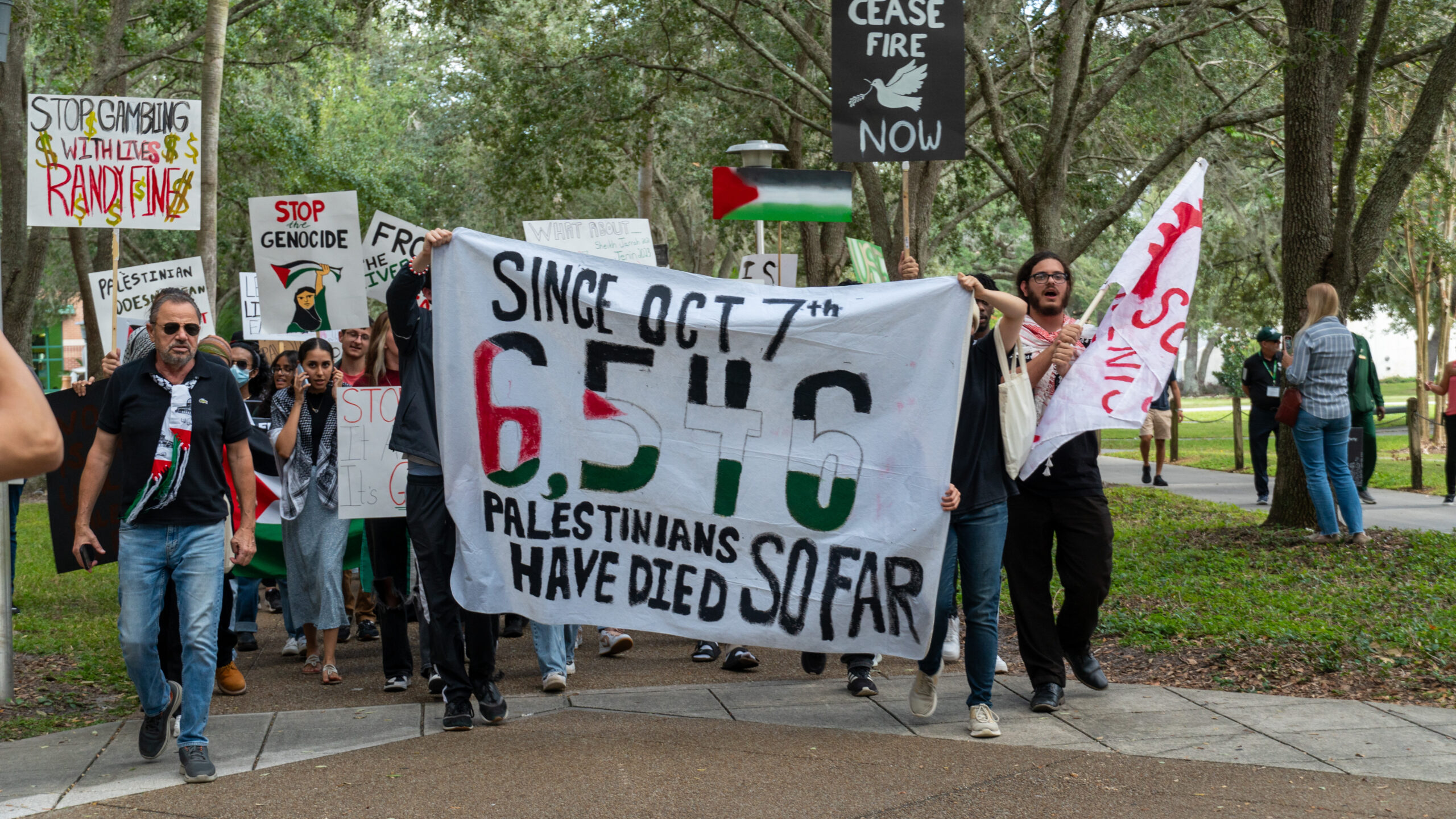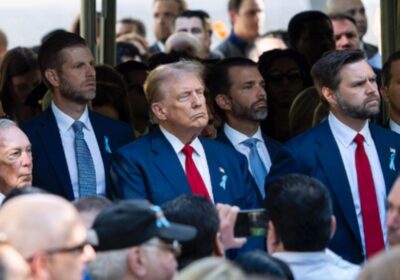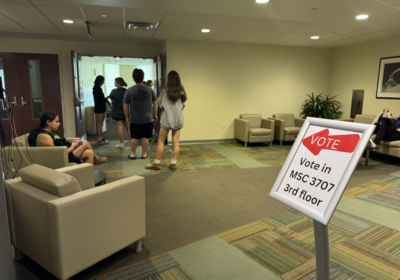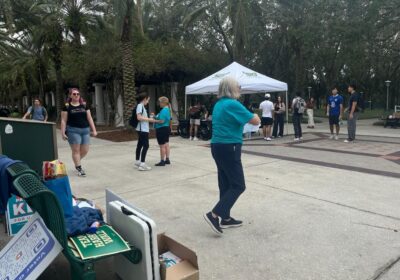USF’s response to letter disbanding pro-Palestinian student groups still unclear

USF is still reviewing the order to dismantle chapters of the National Students for Justice in Palestine (NSJP), according to Director of Media Relations Althea Johnson.
The university’s vague statements have left students confused.
A letter from State University System (SUS) Chancellor Ray Rodrigues was sent on Tuesday to university presidents saying that NSJP has made statements classified as “harmful support for terrorist groups.”
Related: Florida orders pro-Palestinian USF group to disband
The University of Florida has stated it will evaluate its registered student organizations to verify if any actions mentioned in the letter were carried out by their students, according to the Tampa Bay Times.
Dean of Students Danielle McDonald did not respond to The Oracle’s request for comment at the time of the publication.
Student Government (SG) President Cesar Esmeraldi said that everyone in the university is working “hard to protect all students.”
“I am not gonna speak for all Student Government, but I think one of my main missions is to protect all students and for all students to be able to express their First Amendment right,” Esmeraldi said.
Students gathered at the corner of Genshaft Drive and Alumni Drive for a pro-Palestine march to the Martin Luther King (MLK) Plaza on Thursday at 2 p.m.
USF chapters of Students for Socialism (SFS), Students Organize 4 Syria (SOS), Students for Justice in Palestine (SJP), Muslim Students Association (MSA) and Sister United Muslim Association (SUMA) jointly organized the march.
Extra signs and flags were brought by the first members of student organizations to arrive at the assigned meeting corner. Passing cars honked horns in support of the demonstration while passing the traffic light.
One student organizer, who asked to remain anonymous, instructed all attendees not to engage if they were met with “counter protests” or retaliation. They said “this protest will remain peaceful.”
Related: PHOTO GALLERY – Student organizations March for Palestine
USF employees and University Police were present throughout the march.
During the address, another student organizer said that the “genocidal rhetoric” can not be allowed.
“We have to stand up as white people. We have to stand up. We have to use our privilege that we have in this country as a shield,” the student said.
“1, 2, 3, 4, occupation no more,” “Free, free Palestine” and “Not another nickel, not another dime, no more money for Israel’s crimes,” were chanted. Around 70 students made their way down USF Alumni drive, stopping at the MLK plaza.
Freshman political science major Ivan Steagall was one of the speakers. Although Steagall is not Palestinian or part of any student organizations, the Brazilian student said they had to show up.
“I was scared to come today… But if I didn’t come, I would be betraying myself and what I believe in,” Steagall said.
Steagall said the biggest issue with how Palestinians are characterized in the media is that people consume it without further research.
“There seems to be not many people that are specifically against Palestine or Gaza, but the same people will read something on facebook and go ‘Oh, Hamas decapitated babies,’” Steagall said.
Palestinian student and SJP member Serene Abulhaija said she encourages people to do their own research beyond media consumption.
“Listen to both sides,” Abulhaija said. “Look into the history of both places, instead of just listening to the narrative that this has anything to do with religion, because it absolutely does not.”
Abulhaija said students should continue to speak up for those who can’t in Palestine. Although she said students have the privilege to speak up, Abulhaija said she feels USF has not provided help to the cause.
Senior studio art major Caín Lima said that they have read about the occupation in Palestine since middle school. Lima, who is from Peru, said they related the treatment of Palestinians to that of South Americans pre-colonialism.
“I think there is a history of oppression in different parts of the world,” Lima said. “It is important to find parallels in the way oppressed people are treated.”
Lima said that these marches’ purpose is to show unity in the community.
“Sometimes moving people emotionally will get them to see things and organize in different ways,” they said.







